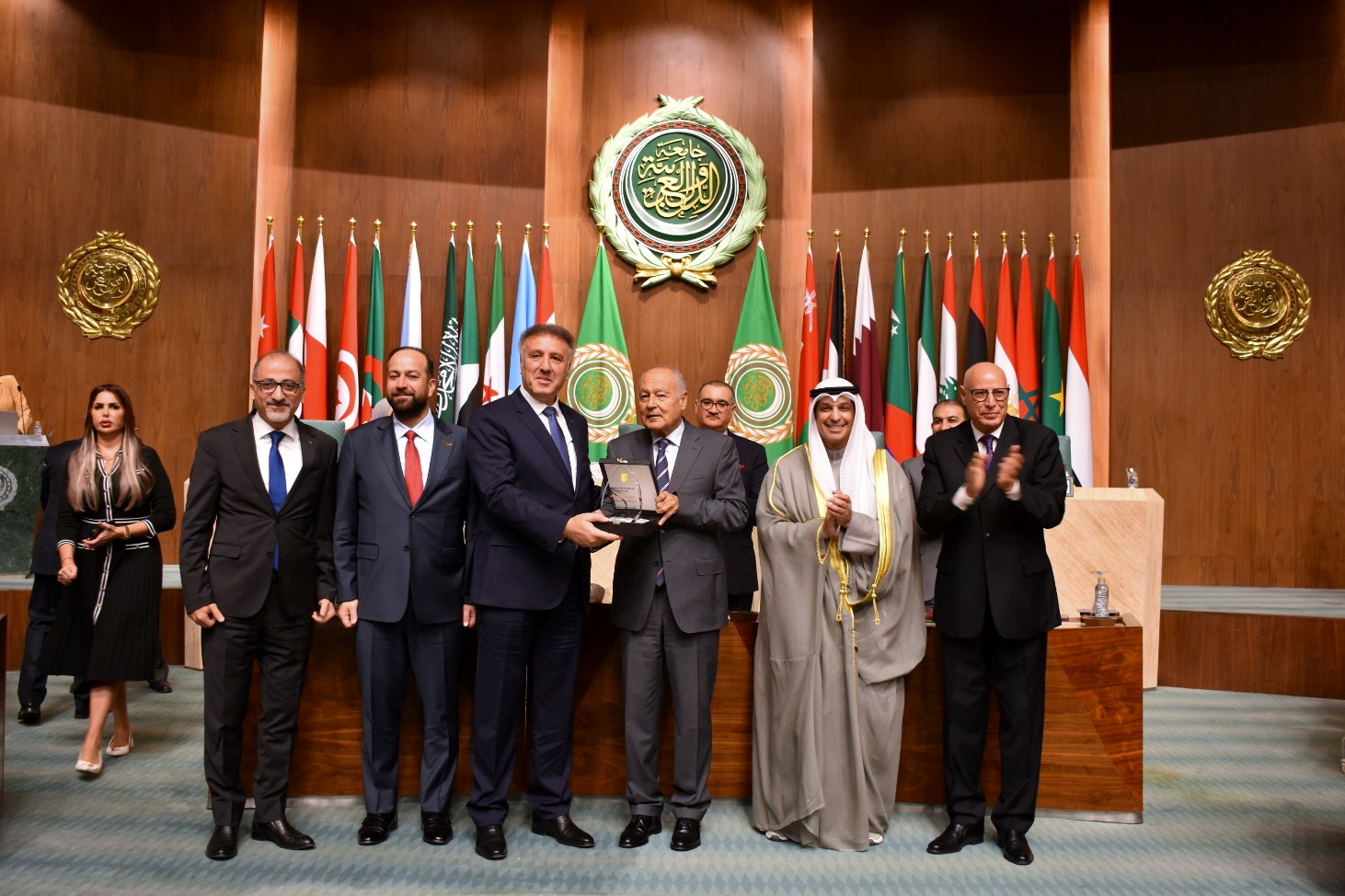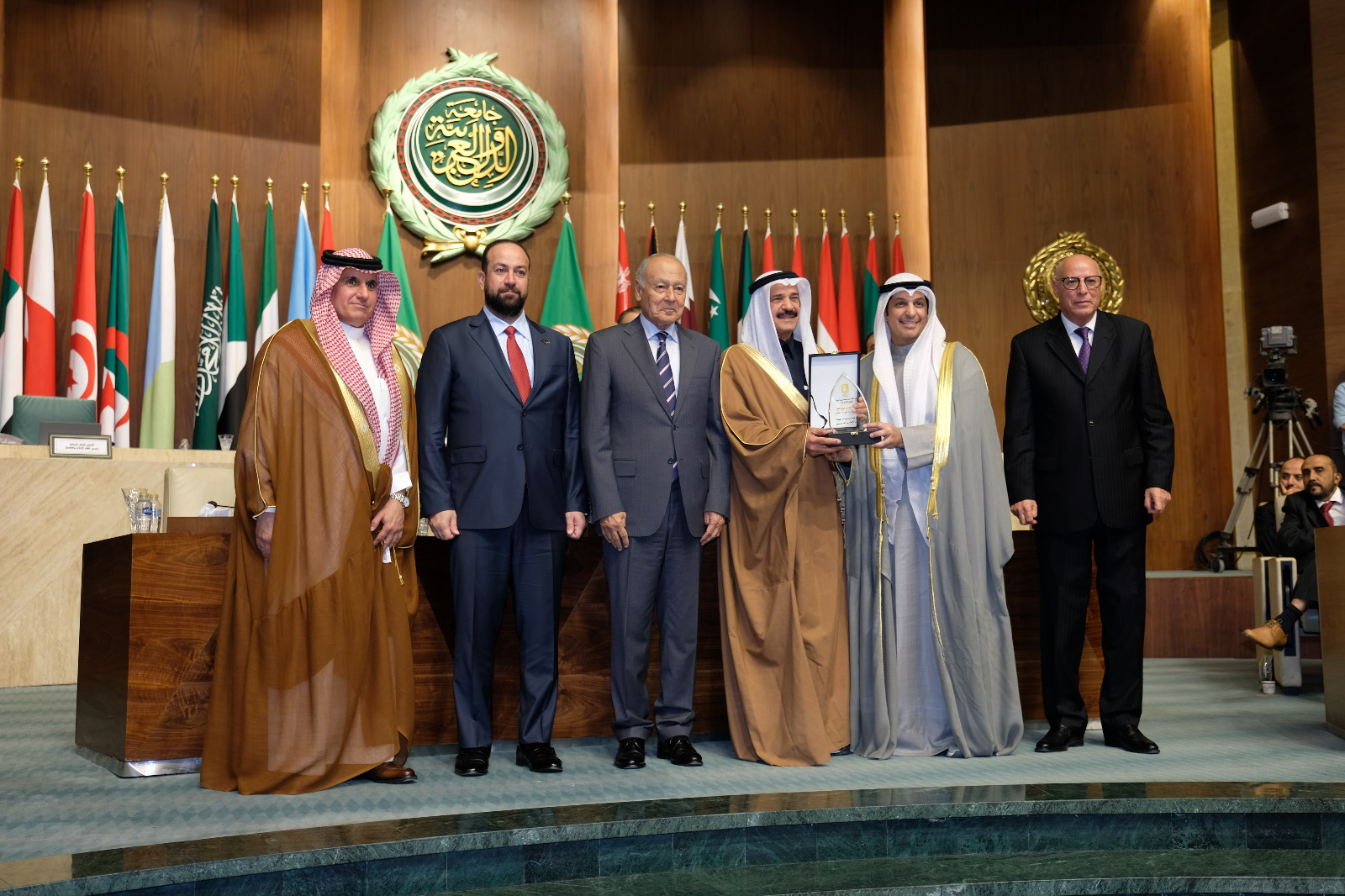The 55th session of the Council of Arab Information Ministers concluded on 26 November at the headquarters of the General Secretariat of the League of Arab States. The session was held in the presence of His Excellency the Secretary-General of the League of Arab States and was chaired by the Syrian Arab Republic. Ministers and heads of delegations from Arab states, as well as representatives of Arab media organisations and bodies with observer status at the Council, also participated.
The resolutions adopted by the Council of Arab Information Ministers underscored the need to continue supporting the Palestinian cause in all its political, humanitarian, and legal dimensions, foremost among them the question of occupied Jerusalem. The Council called upon Arab media institutions to maintain their coverage of current developments in light of ongoing Israeli violations of the ceasefire in the Gaza Strip and grave abuses in the West Bank. The Council also condemned the targeting of Palestinian journalists by Israeli forces, describing it as a flagrant violation of international humanitarian law.
With respect to the Media Code of Ethics, the Council affirmed the importance of promoting the Code in accordance with the amendments introduced during the 163rd session of the Council of the League of Arab States on 23 April 2025. It stressed the need to activate its provisions and to disseminate it widely within the Arab media sphere, in line with its principles of integrity, objectivity, accuracy, and credibility, and its commitment to fostering a culture of tolerance, rejecting biased or discriminatory rhetoric, and respecting the sovereign rights of Member States.
The Council also adopted the Arab Strategy for Media and Information Literacy and the Unified Arab Plan for Addressing Environmental Issues and Sustainable Development, in alignment with the Arab Vision 2045 adopted at the 34th Arab Summit held in Baghdad in May 2025.
With a view to remaining attuned to the evolving media and digital landscape, the Council welcomed the initiative of the United Arab Emirates to organise a programme on “Media Engineering in the Age of Artificial Intelligence,” and tasked the Arab Committee for Electronic Media with preparing a draft Arab model law to regulate digital media.
Regarding the Arab media action plan abroad, the Council underscored the urgent need for the sound and integrated implementation of the plan’s mechanisms and components, beginning with providing media support for the Palestinian cause, countering the Israeli narrative, promoting Arab cultural and civilisational identity, and addressing the phenomena of extremism and terrorism.
The Council, in this context, commissioned a team of experts to develop a comprehensive vision and timeline for implementing the phased plan of the Arab Media Strategy for Combating Terrorism, in cooperation with Naif Arab University for Security Sciences.
The Council further called upon member states, organisations, and unions engaged in media activities to continue their efforts in implementing the Arab Media Roadmap for Sustainable Development.
Seeking to finalise a comprehensive Arab vision for negotiations with international media companies, the Council urged the relevant working group, in cooperation with the Arab States Broadcasting Union, to expedite the preparation of this vision ahead of its submission at the next session.
On a separate note, the Council of Arab Information Ministers approved the designation of Rabat as the Capital of Arab Media for 2026, Doha for 2027, and Damascus for 2028. The Council stressed that the programme of activities for these events should include a special focus on Jerusalem and the distinct character of this holy city at the spiritual, cultural, and architectural levels.
As part of its commitment to addressing critical media issues, including the situation of children in the Arab region, the Council approved the Arab Children’s Media Award. The award, jointly developed by the League of Arab States (Media and Communication Sector and Social Affairs Sector), was initiated by Her Highness Sheikha Fatima bint Mubarak of the United Arab Emirates. It aims to give the award a broad Arab dimension reflective of its social, educational, and developmental significance, and to encourage the creation of innovative content that serves children’s issues.
.jpeg)
On the sidelines of the 55th session of the Council of Arab Information Ministers, His Excellency Mr. Ahmed Aboul Gheit, Secretary-General of the League of Arab States, honoured the Minister in charge of official media in the State of Palestine, Mr. Ahmed Assaf, in a strong gesture of solidarity with the Palestinian media community. Certificates of appreciation were also presented to a number of Arab media professionals, and financial awards, generously sponsored by the State of Kuwait, were granted to the winners of the Arab Media Excellence Award in various written, audio-visual, and digital categories.

.jpeg)

